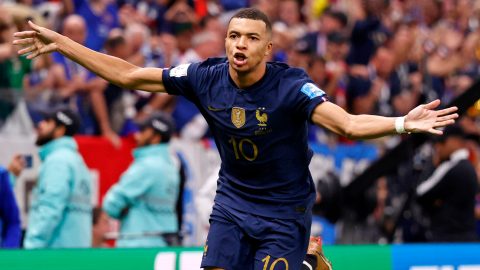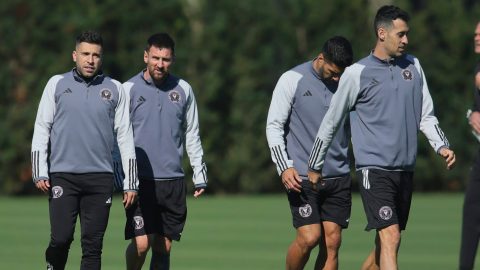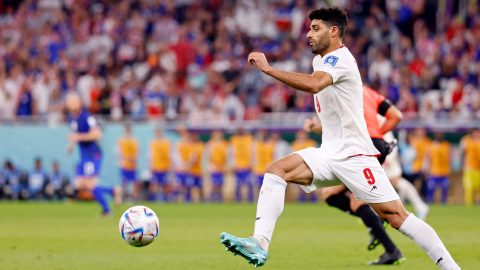For the last week, Mother Russia threatened to overrun the 2012 UEFA European Championships. It was playing some of the most eye-catching soccer on the field, while her fans were making their presence felt all over Poland.
Before Euro 2012 got under way, some had picked the Russians to win Group A and go deep into the tournament. After their first two games — a 4-1 demolition of the Czech Republic and a 1-1 draw against the host-nation Poland — it looked their status as a “safe bet” was more than secure.
Russia’s irresistable attacking play won it plenty of admirers. Its sharp passing and incisive movement created loads of scoring chances, and caused analysts to take notice. Was this team here to announce to the world that Russian soccer was nearing the highest level of the game? Was this team a symbol of a new, resurgent, post-Soviet-era Russia — one whose social, economic and politcal might cause the rest of Europe to shudder in fear?
All that talk ground to a screeching halt on Saturday. Needing only a draw in its final Group A game against (debt-saddled) Greece, Russia lost 1-0. That result, combined with the Czech Republic’s 1-0 win over Poland eliminated the “Beasts of the East” from the tournament.
A lapse in concentration gifted veteran midfielder Giorgos Karagounis a goal on the stroke of halftime. Russia had controlled most of the game, but found itself trailing at the break. Its attempts to score a tying goal in the second half would be futile, leaving its fans to wonder both “what happened?” and “what if?”
Talent and experience was not the problem. Russia was led by manager Dick Advocaat — a Dutchman whose meandering 30-year managerial career has taken him from his country to Scotland, Germany, the U.A.E., South Korea, Belgium and Russia. In another era, he would have sold his talents to the highest bidder in either Spain, England or Germany. But he has enjoyed a successful spell in Russian soccer since he first arrived in 2006. He won the UEFA Cup (now Europa League) with Zenit St. Petersburg in 2008, cementing his place among Europe’s top coaches in both reputation and pay.
“I’m not really too interested in what others say about me,” Goal.com reports Advocaat said after the loss to Greece. “My staff worked really hard, we were undefeated for 16 matches.”
Russia captain Andrey Arshavin performed at a world-class level at Euro 2012. The 31-year-old tormented defenders in all three games, rehabilitating his battered reputation. One of the stars of Euro 2008, Arshavin’s 2009 move to Arsenal was supposed to herald a new era of succesful Russian players in Europe.
Although his Premier League adventure started off well, it soon veered off course. For he so loved his country that its failure to qualify for the 2010 world cup reportedly caused him to sink into a psycological abyss from which he is only now starting to emerge. When he is fit and motivated (as has been the case for maybe 20 of the last 48 months), there are few players in all of world soccer capable of doing what he does.
Arshavin is one of many Russian players, including Aleksandr Kerzhakov, Roman Pavlyuchenko and Yuri Zhirkov, who (in recent years) have found it easier to play their best soccer for Russian clubs rather than those in the “cosmopolitan” cities of Western Europe.
What happens to the next generation of Russian talent will be key to Russia’s future as a soccer nation. 21-year-old Alan Dzagoev scored three goals at Euro 2012, making him one of the breakout stars of the tournament. The level-headed, yet ambitious, attacker has become a transfer target for a number of Europe’s top clubs, who are looking for a player that can create and score goals.
Exporting players will be key to the continued development of Russian soccer over the next five years. Having players perform in the knockout rounds of the UEFA Champions League not only adds gloss and credibility to the Russian game. It hardens players and sharpens their instincts so that they don’t give away goals at decisive moments in big games.
Russian soccer already produces plenty of talented players, but the environment in the domestic game prevents players from staying home and reaching the peak performance (relative to the best players in Western Europe or South America). The spending spree of recent years has brought big-name players and coaches to the country and helped move the game forward, but success has been limited.
If market forces stay the same, and when Russia begins producing “mature” players, it could shift the balance of power in world soccer. In the coming years, fans in that country could see one of their clubs win the UEFA Champions League. Russia will host the 2018 FIFA World Cup, and its fans could support a top-class national team — even dream of winning the tournament. They could sing the names of a new generation of heroes who will be known to fans around the world, just as Lev Yashin and Valeriy Lobanovsky were during the heady days of the Soviet Union.
But the 2012 Russia team, that bright shooting star, has expired. We will remember her fans for their “Russia Day” march that ended in chaos and her team as one that was capable of achieving great things in a way that nobody’s seen before. However, it was equally capable of combusting or imploding due to divisions, inbalance and a lack of luxury players. In some ways it resembles the Russia of today — the country it represents.
Have a question for Marcus Kwesi O’Mard? Send it to him via Twitter at @NESNsoccer, NESN Soccer’s Facebook page or send it here. He will pick a few questions to answer every week for his mailbag.



